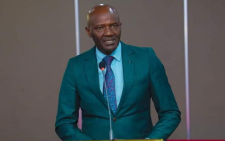Kicotec deals, budgets return to haunt Ngilu

Some of the questionable projects undertaken by former Kitui Governor Charity Ngilu have come back to haunt her, almost three years since she left office.
Last week, the Senate Committee on County Public Investments and Special Funds summoned Ngilu for grilling over claims of misuse of public funds at the Kitui County Textile Centre (Kicotec).
The garment factory, established controversially in 2018, without any backing in law was one of Ngilu’s much-hyped project that went on to win national government tenders to manufacture police uniform alongside those of chiefs and their assistants during retired president Uhuru Kenyatta regime.
Despite bagging multi-million-shilling tenders and raking in tidy revenue, the factory which was touted as semi-autonomous continued to struggle financially, with the former governor allocating it hundreds of millions of shillings for its operations in annual budgets.
Several times, Kitui County Assembly questioned the manner in which Kicotec and its financial accounts were being run and wondered why the factory continued to draw funds from the public yet it was making profits.
In summoning Ngilu for questioning, the Senate committee led by its chairman and Vihiga senator Godfrey Osotsi, said they wanted her and top managers of the Kicotec to shed light on how hundreds of millions of shillings generated by the garment factory were banked and used.
Of interest to the committee are financial records for 2019/20, 2020/21 and 2021/22 financial years.
Ngilu, Kicotec’s board of directors at the time and top county officials who signed financial statements for the factory are expected to appear at the senate early this month. The senate committee has also invited Ethics and Anti Corruption Commission (EACC) officers to be present during the grilling to further investigate the alleged financial impropriety.
The committee noted that the factory faced serious financial challenges that resulted into delayed payment of salaries for its workers running into several months. On a number of occasions, the factory was shut down after it failed to pay for electricity bills.
“The committee hereby issues summons to the former governor of Kitui County Charity Ngilu, the former top management officials, and all officials who signed financial statements of the Kitui County Textile Center for the cited financial years,” said Osotsi.
In her reports, the Auditor General (AG) issued adverse opinions for the factory’s financial records in the financial years under review, highlighting significant management and financial challenges that threatened its operations and sustainability.
For instance, according to the AG report for the year ending June 2022, there were anomalies in the payment of Sh 49.1 million as salaries and wages to casual employees. Similarly, for 2020/2021, the auditor flagged Sh56.7 million over irregular payment of casuals who had no signed contracts.
The Auditor General also questioned the irregular manner in which the factory’s bank account signatories were changed to include two chief officers without following due process. She has also cited lack of payment vouchers to casual workers, which made it difficult to authenticate the payments.
When the current governor Julius Malombe came into office, he set up as special taskforce to look into the status of the county investments and assets, among them the garment factory.
While handing over its final report to the governor last year, the committee regretted that Kicotec was fiscally on its knees despite making profits amounting to Sh614 million.
Shockingly, out of the Sh614 million that the factory had raked in as revenue, only Sh440,000 had remained as bank balance, yet the factory’s employees had gone for several months without salaries and electricity bills had piled up.
Further, the committee established that some items at the garment-making factory such as computerized sewing machines and mosquito net-making machines were purchased at highly inflated costs, an indication that the public did not get value for money.
In November 2018, the County Assembly committee on Basic Education Training and Skills Development established that Ngilu’s administration had entered into an irregular and opaque engagement with Nakuru-based Trendy Technical and Vocational Centre to train the tailors working at Kicotec.
The assembly’s committee noted that there was no Memorandum of Understanding (MoU) between the technical centre and the county government, and questioned how the college was paid Sh30 million to train the tailors in the absence of such an MoU.












